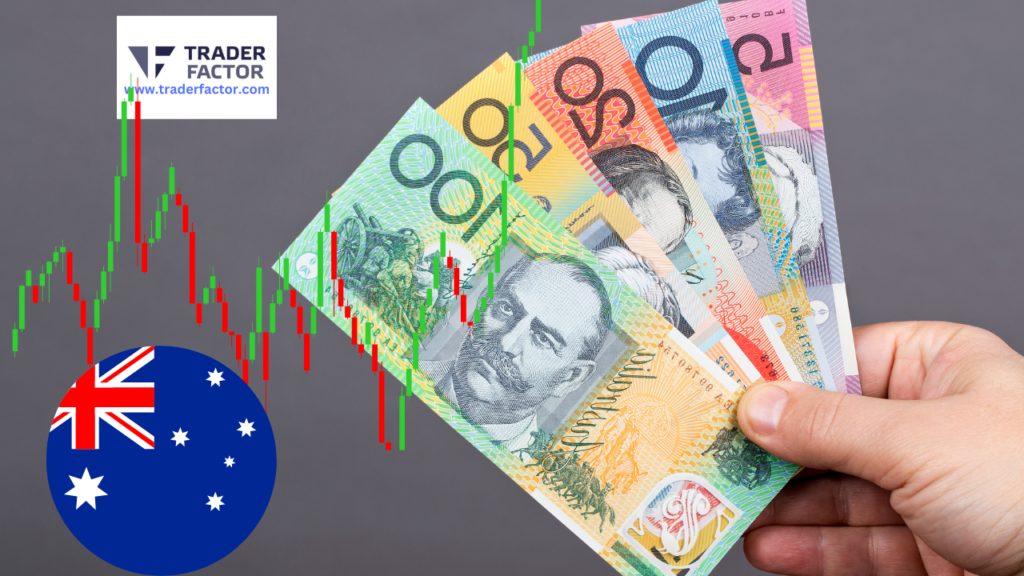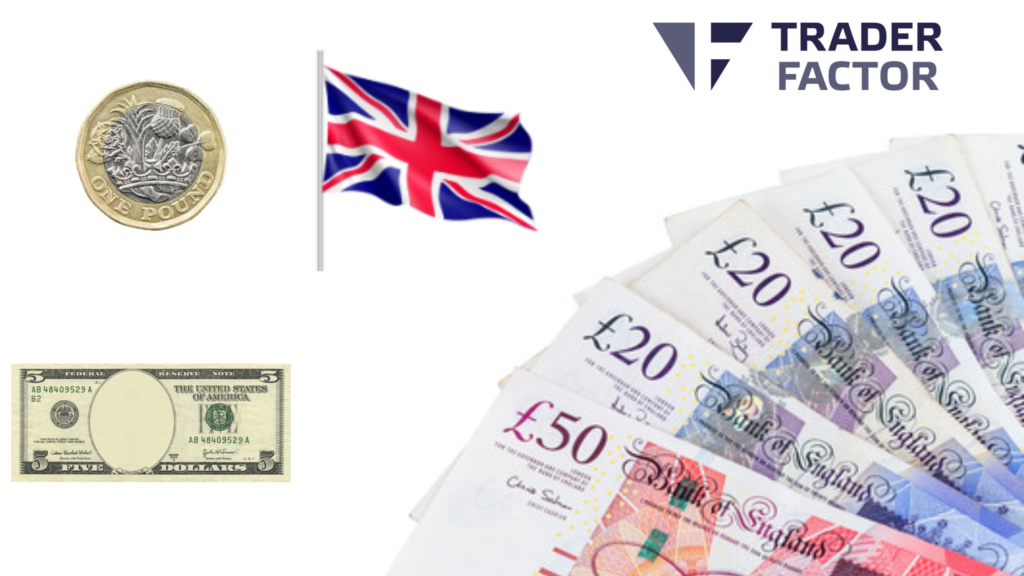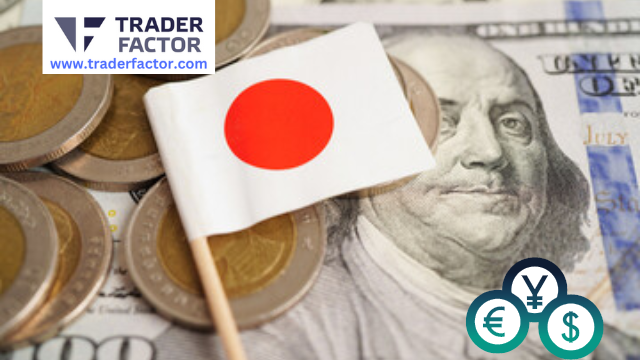Navigating the world of taxes can be complex, especially when it comes to forex trading. If you’re a forex trader, understanding the tax implications is crucial to ensure compliance and avoid any unnecessary penalties. In this discussion, we will delve into the essential education you need regarding taxes on forex trading.
Whether you’re a beginner or an experienced trader, this information will provide clarity and guidance on how to handle taxes related to your forex trading activities.
Table of Contents
ToggleGeneral Principles in Tax Laws and Regulations for Forex Trading

When it comes to forex trading, understanding the general principles in tax laws and regulations is vital to ensure compliance and manage your tax obligations effectively. In this section, we will explore some key aspects of tax laws and regulations related to forex trading and address common questions that traders often have.
Forex trading profits may be subject to capital gains tax or income tax depending on your country’s tax laws
One of the most important considerations for forex traders is how their trading profits are taxed. In many countries, forex trading profits are treated as either capital gains or ordinary income, depending on several factors such as the frequency of trading and the intention behind the trading activities.
Common questions:
- How do I know if my forex trading profits are considered capital gains or ordinary income?
- Are there any specific criteria for determining the tax treatment of forex trading profits?
- What are the tax rates for capital gains and ordinary income in my country?

Forex trading losses may be deductible against other forms of income, subject to certain limitations
Forex trading involves risks, and losses are an inevitable part of the process. The good news is that in many jurisdictions, forex trading losses can be deducted against other sources of income, potentially reducing your overall tax liability. However, there may be limitations on the amount of losses you can deduct in a given tax year or restrictions on carrying forward losses to future years. Understanding these rules will help you make informed decisions and optimize your tax strategy.
Common questions:
- Can I claim forex trading losses on my tax return?
- Are there any limitations on the amount of losses I can deduct?
- How do I carry forward losses to offset future taxable gains?
Tax reporting requirements for forex trading activities may include reporting gains and losses on a tax return, and providing supporting documentation to tax authorities
As a forex trader, it is essential to fulfill your tax reporting obligations accurately and on time. This typically involves reporting your gains and losses from forex trading activities on your tax return. Additionally, you may be required to provide supporting documentation, such as trade records, account statements, and receipts, to substantiate the information reported. Adhering to these reporting requirements will help you avoid any potential penalties or audits.
Common questions:
- What tax forms do I need to use to report my forex trading gains and losses?
- What kind of supporting documentation should I maintain for tax purposes?
- Are there any specific deadlines for filing tax returns related to forex trading?

Forex trading activities may be subject to VAT or other indirect taxes depending on the jurisdiction
In some jurisdictions, forex trading activities may be subject to value-added tax (VAT) or other indirect taxes. The rules regarding the taxation of forex trading can vary significantly from one country to another. It is crucial to understand the tax implications specific to your jurisdiction and seek professional advice to ensure compliance.
Common questions:
- Is forex trading subject to VAT in my country?
- Are there any other indirect taxes that apply to forex trading?
- Are there any exemptions or special provisions for forex traders regarding indirect taxes?
International forex trading may be subject to additional tax laws and regulations, such as withholding taxes or tax treaties.
If you engage in international forex trading, additional tax laws and regulations may come into play. These could include withholding taxes on profits earned in foreign countries, tax treaties between jurisdictions, and reporting obligations for foreign accounts. Understanding the cross-border tax implications of forex trading is crucial to avoid any legal issues and optimize your tax planning.
Common questions:
- Are there any withholding taxes on forex trading profits in foreign countries?
- How do tax treaties affect the taxation of international forex trading?
- What are the reporting requirements for foreign accounts related to forex trading?

Forex traders should keep accurate records of all trades, including dates, amounts, and exchange rates, to comply with tax laws and regulations
Keeping detailed and accurate records of your forex trading activities is essential for tax compliance. This includes recording important information such as the dates and amounts of trades, exchange rates, transaction costs, and any relevant supporting documentation. Having organized records will not only help you accurately report your gains and losses but also provide evidence in case of an audit or tax inquiry.
Common questions:
- What specific information do I need to record for each forex trade?
- How long should I retain my trading records for tax purposes?
- Are there any recommended tools or software to help track and manage forex trading records?
It is crucial to familiarize yourself with your country’s tax laws to determine the applicable tax treatment for your forex trading profits.
How to Calculate Taxes on Forex Trading

When it comes to taxes on forex trading, understanding the proper calculations is crucial. Here are the steps to help you calculate your taxes accurately:
Determine the Tax Treatment
The first step is to determine whether your forex trading profits are subject to capital gains tax or income tax in your country or region. The tax treatment may vary depending on local regulations, so it’s essential to consult with a tax professional or review the relevant tax laws.
Calculate Net Profit or Loss
To calculate your net profit or loss from forex trading activities, subtract your total losses from your total gains. This will give you the overall result of your forex trading endeavors. Keep accurate records of all trades, including dates, amounts, and exchange rates, to ensure precise calculations.

Income Tax Considerations
If your forex trading profits are subject to income tax, you will need to include them on your tax return as taxable income. Consult with a tax professional or refer to the tax guidelines of your country to determine the specific reporting requirements.
Capital Gains Tax Considerations
If your forex trading profits are subject to capital gains tax, the calculation involves subtracting the purchase price from the selling price of the currency to determine your capital gains or losses. Keep track of the purchase and sale prices, as well as any associated fees or commissions.
Maintain Accurate Records
It’s crucial to maintain accurate records of all your forex trading activities. This includes details such as trade dates, transaction amounts, exchange rates, and any relevant expenses or deductions. These records will serve as evidence for proper tax calculations and can help in case of an audit or tax review.
Tax Reporting Requirements

As a forex trader, it’s important to understand the tax reporting requirements associated with your trading activities. Failure to comply with these obligations can result in penalties and legal consequences. Here are some key points to keep in mind:
Forex traders need to report gains and losses from forex trading activities on their tax return.
When it comes to taxes, forex trading is treated as either capital gains or ordinary income, depending on various factors such as trading frequency and intent. It’s important to accurately calculate and report your gains and losses to ensure compliance with tax regulations.
Supporting documentation, such as trade confirmations and account statements, may need to be provided to tax authorities to verify reported gains and losses.
To substantiate your reported gains and losses, tax authorities may require you to provide supporting documentation. This can include trade confirmations, account statements, and any other relevant records related to your forex trading activities. It’s crucial to maintain accurate and organized records to simplify the tax reporting process and avoid potential disputes.

Forex traders may need to file additional tax forms, such as Form 8938 in the United States, to report foreign financial assets and trading activities.
In certain cases, forex traders may have to comply with specific reporting requirements for foreign financial assets and trading activities. For example, in the United States, forex traders may need to file Form 8938, the Statement of Specified Foreign Financial Assets, if they meet the specified threshold. It’s important to familiarize yourself with the additional forms required in your jurisdiction to ensure full compliance.
In some cases, forex traders may need to register with tax authorities as self-employed or as a business entity to report forex trading activities.
Depending on your jurisdiction and the scale of your forex trading activities, you may be required to register with tax authorities as self-employed or as a business entity. Registering appropriately ensures that your trading activities are recognized and accounted for under the correct tax structure. Consulting with a tax professional or accountant can provide valuable guidance in determining the most suitable registration option for your circumstances.

Tax reporting deadlines and requirements may vary depending on the jurisdiction and the type of tax being reported.
It’s important to be aware that tax reporting deadlines and requirements can vary based on the jurisdiction you reside in and the specific tax being reported. Familiarize yourself with the deadlines and guidelines provided by your local tax authority to avoid any late filing penalties or compliance issues.
Staying informed and organized will help you meet your tax obligations effectively.
Strategies to Minimize Taxes and Maximize Profits in Forex Trading

When it comes to forex trading, minimizing taxes and maximizing profits go hand in hand. By implementing smart tax strategies, you can optimize your trading activities while staying compliant with tax laws. Here are some strategies to consider:
Consider trading in tax-advantaged accounts, such as Individual Retirement Accounts (IRAs) in the United States, to defer or avoid taxes on forex trading profits.
One effective way to minimize taxes on your forex trading profits is by utilizing tax-advantaged accounts, such as Individual Retirement Accounts (IRAs) in the United States. By trading within an IRA, you can potentially defer taxes on your profits until retirement or even enjoy tax-free growth if it’s a Roth IRA. This strategy allows you to maximize your returns while reducing your immediate tax liability.
Plan ahead for tax obligations by setting aside funds for taxes and keeping accurate records of all forex trading activities.
To avoid any surprises when it’s time to pay taxes, it’s crucial to plan ahead. Set aside a portion of your trading profits specifically for taxes. By doing so, you ensure that you have the necessary funds available when tax season rolls around. Additionally, maintain accurate records of all your forex trading activities, including trades, profits, losses, expenses, and any other relevant information. This documentation will be invaluable when reporting your taxes and can help you claim deductions and credits effectively.

Consider using tax loss harvesting strategies to offset gains with losses, which can reduce overall tax liability.
Tax loss harvesting involves strategically selling investments at a loss to offset capital gains and reduce your overall taxable income. In forex trading, this strategy can be utilized by intentionally realizing losses on certain trades to offset gains on others. By doing so, you can significantly lower your tax liability. However, remember to adhere to tax rules and consult with a tax professional to ensure compliance.
Be aware of tax treaties between countries to minimize withholding taxes on international forex trading activities.
If you engage in international forex trading, be aware of tax treaties between countries. These treaties can provide provisions to minimize or eliminate double taxation and reduce withholding taxes on your trading activities. Understanding these agreements and their implications can help you optimize your tax situation and avoid unnecessary tax burdens.
Consider consulting with a tax professional or accountant to optimize tax strategies and ensure compliance with tax laws and regulations.

When it comes to taxes, seeking guidance from a qualified tax professional or accountant is essential. They can provide personalized advice based on your individual circumstances, help you optimize your tax strategies, and keep you in compliance with tax laws and regulations.
A tax professional can also assist with tax planning, ensuring that you make informed decisions that align with your financial goals.
Importance of Record-Keeping for Forex Trading Taxes

Accurate records of all your forex trading activities are crucial when it comes to ensuring compliance with tax laws and regulations. By keeping detailed and complete records, you can effectively meet your tax reporting requirements and minimize any potential issues with the tax authorities. Here’s why record-keeping is essential for forex traders:
Accurate records of all forex trading activities can help ensure compliance with tax laws and regulations.
Maintaining accurate records of your forex trading activities is essential for complying with tax laws and regulations. By documenting each trade, including the date, currency pair, transaction details, and any associated costs, you can provide a clear picture of your trading activities in the event of an audit or tax inquiry.
Complete records of forex trading activities can help support tax reporting requirements, such as reporting gains and losses on tax returns.

When it’s time to report your forex trading gains and losses on your tax return, having complete records is vital. These records should include the details of each trade, such as the purchase price, sale price, and transaction fees. With this information readily available, you can accurately calculate your taxable gains or losses and report them correctly on the appropriate tax forms.
Detailed records can help identify tax-loss harvesting opportunities to offset gains with losses, which can reduce overall tax liability.
By maintaining detailed records of your forex trading activities, you can identify tax-loss harvesting opportunities. Tax-loss harvesting involves strategically realizing losses to offset gains, thereby reducing your overall tax liability. With comprehensive records, you can easily identify trades that resulted in losses and utilize them to offset any taxable gains.
Well-organized records can help facilitate the tax preparation process and reduce the risk of errors or omissions on tax returns.
Keeping your records well-organized can significantly streamline the tax preparation process. When your records are neatly categorized and accessible, you can quickly gather the necessary information required for your tax return. This reduces the risk of errors or omissions when reporting your forex trading activities, ensuring accurate and compliant tax filings.
Maintaining records can help identify areas for improvement in forex trading strategies and overall profitability.

In addition to tax-related benefits, maintaining records of your forex trading activities can also offer valuable insights into your trading strategies and overall profitability. By reviewing your trades and analyzing the performance data, you can identify areas for improvement, make informed decisions, and optimize your trading approach. This can ultimately lead to better financial outcomes and increased profitability.
Remember, keeping accurate and organized records is essential for successfully navigating the tax implications of forex trading. By prioritizing record-keeping, you can ensure compliance, reduce tax liability, and gain valuable insights into your trading activities.
Consult with a tax professional or accountant for personalized guidance based on your specific circumstances.
Is Trader Tax Status Worth It?

Trader Tax Status (TTS) can offer significant benefits for active traders in terms of tax savings and deductions. However, whether or not TTS is worth it depends on your specific circumstances and trading activities.
To determine if TTS is worth pursuing, consider the following factors:

- TTS is typically more advantageous for traders who engage in frequent and substantial trading activities. If you trade infrequently or with small volumes, the potential tax benefits may not outweigh the effort and costs associated with obtaining TTS.
- TTS is primarily designed to benefit profitable traders by allowing them to deduct business expenses related to their trading activities. If your trading consistently generates profits, pursuing TTS can help reduce your taxable income and potentially lower your overall tax liability.
- Qualifying for TTS often requires meeting specific criteria set by the Internal Revenue Service (IRS). This includes spending a significant amount of time actively trading and treating trading as a business. Consider whether you are willing to commit the necessary time and effort to meet these requirements.
- Consulting with a qualified tax professional or CPA who specializes in trader taxation is crucial. They can assess your individual situation, evaluate the potential benefits of TTS, and guide you through the process of applying for and maintaining TTS.
Ultimately, the decision to pursue TTS should be based on a careful evaluation of your trading activities, financial goals, and personal circumstances.
Choosing The Best Tax Structure For Day Traders

When it comes to choosing the best tax structure for day traders, there are several options to consider. One popular choice is setting up a Limited Liability Company (LLC). LLCs offer ease and flexibility in taxation, making them a preferred option for many active traders.
By electing to be taxed as a partnership, day traders can benefit from pass-through taxation, where profits and losses flow through to the individual level, avoiding double taxation. This structure allows day traders to deduct business expenses, such as trading-related costs, equipment, and education, minimizing their overall taxable income.

Another option to explore is the S Corporation (S Corp) structure. S Corps also provide pass-through taxation, allowing day traders to avoid double taxation. However, S Corps have stricter requirements and may involve more administrative responsibilities. Consulting with a tax professional or accountant is essential to determine the most suitable tax structure for your specific circumstances and to ensure compliance with IRS regulations.
FAQs about Essential Education for Taxes on Forex Trading

How are forex trades taxed?
Forex traders pay tax as their activities can be taxed under the same tax rules as regular commodities contracts or special rules specific to currency trading.
What is the tax status of forex trading?
To determine your tax status, you need to understand whether you are a casual trader or a professional trader in the eyes of tax authorities.
What records should I keep for tax purposes?
It is crucial to keep accurate records of your forex trades, including dates, amounts, exchange rates, transaction costs, and any supporting documentation.
How do I determine my taxable income from forex trading?
Your taxable income from forex trading is determined by calculating the net gains or losses from your trades after considering expenses and deductions.

How do I file taxes for forex trading?
Filing taxes for forex trading requires determining your tax status, organizing your trading records, calculating taxable income, and filing the appropriate tax forms.
What tax rate applies to forex trading profits?
The tax rate on forex trading profits varies depending on your country’s tax laws and your personal income tax slab.
Are there any exemptions or deductions available for forex traders?
Some jurisdictions may offer exemptions or deductions for forex traders, such as deductions for business expenses related to trading activities.
How do taxes work for international forex trading?
International forex trading may be subject to additional tax laws, such as withholding taxes or tax treaties between countries. Understanding these rules is important for compliance.

Can I deduct forex trading losses against other income?
In many jurisdictions, forex trading losses can be deductible against other forms of income, subject to certain limitations and restrictions.
Do I need to pay VAT or other indirect taxes on forex trading?
Depending on your jurisdiction, forex trading activities may be subject to value-added tax (VAT) or other indirect taxes. It is essential to understand the tax implications specific to your country.
Do forex traders pay taxes in the USA?
Yes, forex traders are generally required to pay taxes on their trading profits. The specific tax treatment may vary depending on the country and individual circumstances.
How are forex trades taxed?
Forex trades can be taxed as either capital gains or ordinary income, depending on factors such as trading frequency and intent. Consult with a tax professional or refer to local tax laws for specific guidance.

What is the tax rate on forex trading profits?
The tax rate on forex trading profits can vary. In some cases, a fixed rate is applied to a portion of the profits, while in others, the profits are subject to the individual’s personal income tax slab. Consult with a tax professional or refer to local tax guidelines for accurate information.
Are there any tax deductions available for forex traders?
Depending on the jurisdiction, forex traders may be eligible for certain tax deductions related to their trading activities. Common deductions may include expenses such as trading software, educational materials, and internet fees. It’s essential to maintain proper records and consult with a tax professional to determine eligible deductions.
Do forex traders need to report their trades to tax authorities?
Yes, forex traders are typically required to report their trades and provide supporting documentation to tax authorities. This includes trade confirmations, account statements, and other relevant records. Compliance with reporting requirements is essential to avoid penalties and ensure accurate taxation.
Can forex traders claim losses on their taxes?
In many cases, forex traders can claim losses on their taxes to offset taxable income. Losses may be used to reduce overall tax liability, subject to limitations and regulations in each jurisdiction. Consult with a tax professional for guidance on claiming losses.

Is there a tax calculator available for forex trading?
Yes, there are tax calculators and software tools available specifically designed for calculating taxes on forex trading profits. These tools can help streamline the process and ensure accurate calculations. It’s advisable to consult with a tax professional or use reputable tax software for reliable results.
What are some common tax deductions for day traders?
Some common tax deductions for day traders include expenses for equipment (such as computers), software, internet access, office supplies, and professional services (like accounting or legal fees). Traders may also be able to deduct home office expenses if they have a dedicated space for trading.
Are there any tax benefits specifically for day traders?
Day traders who qualify for trader tax status (TTS) may benefit from significant tax advantages. They can deduct business expenses, startup costs, and home office expenses. Additionally, TTS traders may elect Section 475 mark-to-market accounting, which allows them to avoid wash sale rules and potentially reduce taxes on capital gains.
Key Highlights

When it comes to foreign exchange (forex) trading, understanding the tax implications is crucial. Forex traders need to be aware of their tax obligations based on various factors such as trading activity, forex options and futures, spread betting, tax brackets, and the type of instruments they trade.
In terms of taxation, forex traders are liable to pay income tax on their profits. The tax rates may vary depending on whether the trading is considered short term or long term. It’s important to note that different countries have their own tax laws and regulations regarding forex trading.
For individuals trading forex, the profits may be subject to income tax rates. However, there are certain cases where forex trading falls under capital gains tax or corporation tax. It’s essential for traders to understand the specific tax laws in their country and consult with a tax professional for accurate advice.
Stamp duty is another aspect that forex traders should be aware of. In some countries, there may be stamp duty applicable to certain types of instruments traded. This duty is usually a percentage of the transaction value and needs to be accounted for when calculating tax liabilities.
Long-term capital gains may be treated differently from short-term gains, and there might be specific regulations under IRC section 1256 that apply to forex markets. Traders should familiarize themselves with these rules to ensure compliance with tax laws.

Conclusion
Understanding the essential education for taxes on forex trading is crucial for traders to navigate the complex world of taxation. By knowing the tax rules, keeping accurate records, and seeking professional advice when needed, traders can ensure compliance and make informed decisions regarding their forex trading activities. Stay updated with the latest tax regulations in your country and consult with a qualified tax professional for personalized guidance.
Read These Next
What is a Margin Level in Forex?
Forex Breakout Strategy: A Guide for Profitable Trading
Forex Consolidation Breakout Strategies for Traders
Managing Risks in Forex Trading Without Brokers
Understanding Forex Market Imbalance and How to Use It
Disclaimer:
All information has been prepared by TraderFactor or partners. The information does not contain a record of TraderFactor or partner’s prices or an offer of or solicitation for a transaction in any financial instrument. No representation or warranty is given as to the accuracy or completeness of this information. Any material provided does not have regard to the specific investment objective and financial situation of any person who may read it. Past performance is not a reliable indicator of future performance.















